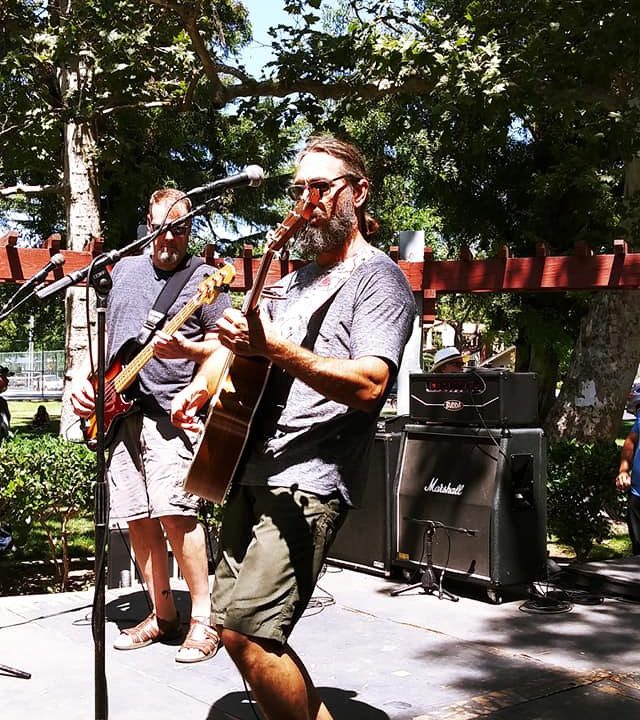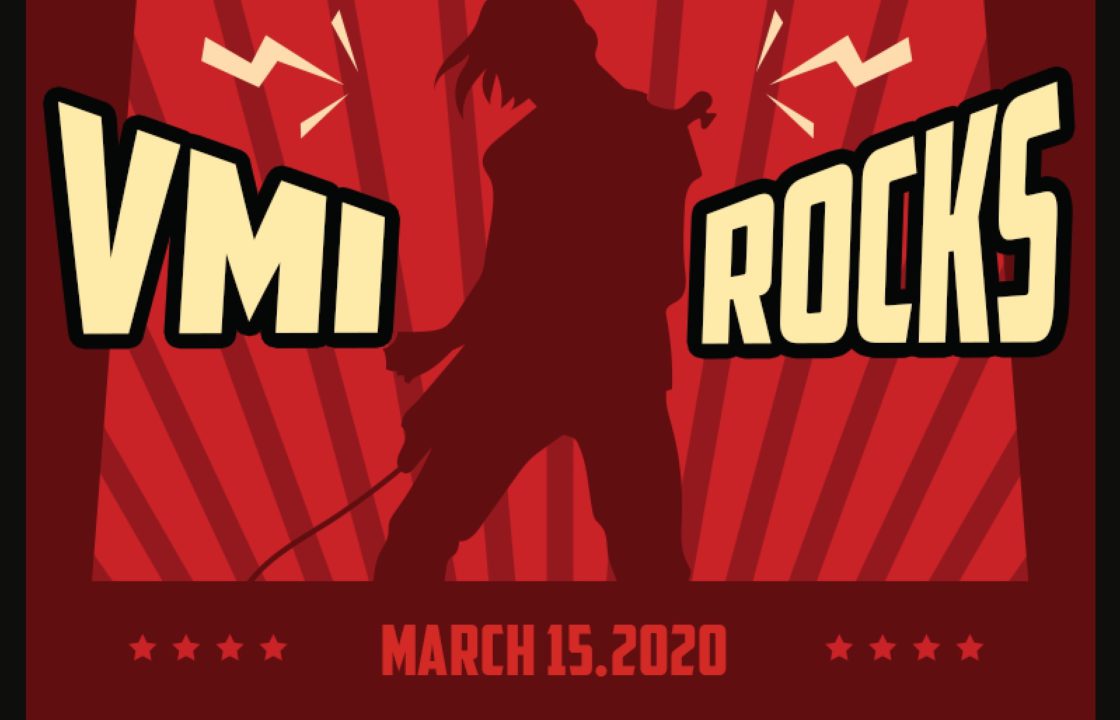 I graduated from Musicians Institute in Hollywood in 1980. They recently featured me in their success story page.
I graduated from Musicians Institute in Hollywood in 1980. They recently featured me in their success story page.
Darin Morris, Valley Music Institute: “Become a Rock Star”
Jul 11, 2011
Darin Morris (Guitar), co-founder of Valley Music Institute in Modesto, CA, has seen phenomenal growth in the “VMI Rocks” program that he launched in 2009 with business partner Rob Berhorst. “We wanted to try a rock band program as a way to keep a little busier during the summer,” Darin said. “We thought we would teach maybe two to four bands every summer. That first summer we had four bands. Since then we have taught 83 bands in just over two years. We have students ages five to sixty-five and for the most part all of our clients keep signing up every three months when we start a new session.”
The VMI Rocks program prepares students to perform at a live concert venue at the end of their program. “We have gone from performing in a small bar & grill to major area venues seating 450 to 1200 people. The students make tremendous strides in musical skill, self confidence, and poise and they have a ball doing it.”
“‘Become a Rock Star’ is the slogan that describes our program. The students get experience in all the aspects of musical performance that you can’t get in your bedroom or with private lessons alone.” Darin added, “Organized rock music should be as big as organized jazz or classical music and organized sports. We started VMI Rocks without many expectations, but now we have a vision and a plan to impact music in this area and beyond for a long time to come.”
http://www.mi.edu/success/darin-morris-valley-music-institute-become-a-rock-star
Here is the history of MI: Today, contemporary music instruction is part of nearly every college music program, but when MI began in the late ’70s there were few such options available to musicians. When a few dozen guitarists and three full-time instructors gathered for the first GIT class in 1977, they knew that they were breaking new ground in music education. Here’s a brief look at how it all began.
The Guitar Institute of Technology (GIT)
The Guitar Institute of Technology opened its doors to full-time students in February of 1977, laying the foundation of Musicians Institute. Based on the educational philosophy of guitarist Howard Roberts, GIT was co-founded and managed by Los Angeles music businessman Pat Hicks. The three original instructors-Joe Diorio, Ron Eschete, and Don Mock-ventured into unexplored territory as they worked to turn Howard’s vision of an intensive, contemporary, vocational guitar program into a practical reality.
Pomp and Circumstance: The first GIT graduating class (March, 1978) poses in front of fabled LA jazz club Donte’s. Next to Pat Hicks (front row, second from left) are Howard Roberts, Ron Eschete (looking to his left), Tommy Tedesco, Joe Diorio (leaning over to Tommy’s left), original Theory teacher Mac McKernan (leaning over to Joe’s left), Don Mock (kneeling in front of Mac) and Rebecca Natalia (then Becky Hicks, to Don’s left). Leaning over Howard’s right shoulder is graduating student Howard Alden, later to achieve renown as a top-rank New York jazz guitarist. At the time, the entire class could easily fit inside the club; today, the entire club could easily fit inside MI’s main concert hall.
Howard Roberts (1929-1992)
MI co-founder and inspiration Howard Roberts poses with his new Gibson Howard Roberts model guitar (c.1980). Throughout the 1950s, ’60s and ’70s, HR was one of the busiest guitarists in Los Angeles, appearing on hundreds of album, movie and TV dates, and his own LPs established him as one of the premier jazz guitar stylists of his generation. He applied a lifelong passion for learning theory to writing books and columns as well as conducting legendary seminars. His efforts raised the standards for guitar education and culminated in the establishment of GIT, the world’s first full-time contemporary guitar program.
In one of the most outstanding collections of musical/educational talent ever assembled, the MI staff poses for an early ’80s group portrait. Front row (L-R): Joe Diorio, Howard Roberts, Casey Scheurell (PIT), Joe Porcaro. Second row: Ron Eschete, Steve Houghton (PIT), Tommy Tedesco, Jeff Berlin (BIT), Tim Bogert (BIT). Back row: Bob Magnussen (BIT), Carl Schroeder, Les Wise, Ralph Humphrey, Paul Farnen (BIT), Don Mock.
With years of experience in the music business, MI co-founder Pat Hicks provided the organizational skills that turned Howard Roberts’ educational philosophy into a functioning music school. During the years following the establishment of GIT, BIT and PIT, Pat continued to manage MI as it grew enormously in size and scope. Following MI’s move into its current McCadden Place facility in 1987, the school added the Vocal Institute of Technology (VIT) in 1987, the Keyboard Institute of Technology (KIT) in 1991, and the Recording Institute of Technology (RIT) in 1993, as well as the Bachelor’s Degree Program in 1994. Pat retired from MI in 1995.
Tommy Tedesco (1930-1997)
After four decades at the peak of the studio guitar profession and innumerable album, movie, and TV soundtrack appearances, Tommy Tedesco earned the undisputed title “World’s Most Recorded Guitarist”. Tommy was renowned for his ability to perform in any style on any stringed instrument, his phenomenal sight-reading ability, and his outrageous sense of humor (on display each Christmas when he donned a form-fitting Santa suit and handed out candy to stunned MI students). As a regular GIT clinician, his seminars were as entertaining as they were informative. In Tommy’s memory, Studio A is designated the “Tommy Tedesco Studio”.
Musicians Institute Takes Shape
With the addition of the Bass Institute of Technology (BIT) in 1978 and the Percussion Institute of Technology (PIT) in 1980, Musicians Institute came into being. The MI facility, located through most of the ’80s on Hollywood Boulevard above the Hollywood Wax Museum, became home to a growing student body and staff while the school matured into its position as an internationally recognized innovator in the field of contemporary music education.
As MI expanded and began attracting students from all over the world, it became the heart of an international community. MI co-founder Rebecca Natalia contributed tremendously to the heart and soul of the school during these years, making MI feel like home to students a long way from their own. Becky retired from MI in 1996.
In the late ’90s, MI began accelerating the pace of program development to match a rapidly changing music industry. In addition to numerous changes within existing programs, several new programs were designed and added. In 2000, the Recording Artist Program (RAP) joined the MI family. Based on a combination of artist development, digital recording skills and music business training, RAP combines technology and creativity to train the versatile independent artists of the future. The Guitar Craft Academy (GCA), also debuting in 2000, focuses on building and maintaining electric guitars and basses, a thriving element of the music industry. In 2002, the Music Business Program (MBP), dedicated to training both musicians and non-musicians in the career skills demanded by the business side of the industry, first opened its doors. MI’s latest program, the Film Institute of Technology, began training music video and commercial directors in early 2005.
With new programs and features constantly in development, MI is dedicated to remaining “The World’s Most Innovative School of Contemporary Music”.
As teachers, Howard recruited the top player-educators in the U.S., including New Orleans’ seven-string guitar pioneer and stellar accompanist Ron Eschete, Miami-based free-form jazz artist and creative inspiration Joe Diorio, and from Seattle, fusion powerhouse Don Mock. Together, they established the unique blend of creative, educational, and professional talent that has remained a hallmark of the MI staff. Here, Ron, Joe and Don are pictured (L-R) along with a later addition to the GIT staff, versatile guitarist Les Wise (second from left)
From the beginning, MI’s staff instructors and visiting artists provided musical inspiration on stage as well as in the classroom. Here, Don Mock (GIT), Joe Brancato (PIT), and Jeff Berlin (BIT) provide stellar backing for Robben Ford during a concert in “Room A” of the 6757 Hollywood Boulevard facility (c.1981).
Founding GIT instructor Don Mock lays it on the table for a couple of students. Each of GIT’s original staff instructors-Don, Joe Diorio, and Ron Eschete-brought unique gifts to the school. Don’s ability to explain difficult concepts in clear, understandable language opened musical doors and his intense playing style inspired students to reach further with their own. Joe helped students break down artistic barriers while expanding the harmonic, melodic, and technical boundaries of jazz guitar. Ron taught players to ignore artificial divisions between rhythm and lead guitar with his all-in-one chord melody approach. Together, they laid the foundations for GIT’s instructional philosophy of hands-on creativity.
Any of you guys know the chords to “Free Bird”? A high-powered guitar quartet, including (L-R) Tommy Tedesco, Howard Roberts, jazz legend/GIT visiting artist Joe Pass, and Don Mock, hangs out in Pat Hicks’ office (c.1987).
BIT’s first director, Chuck Rainey (Aretha Franklin, Sam Cooke, Marvin Gaye, Steely Dan) lays down a deep groove (c.1980). BIT was one of the first schools in the world to recognize the fundamental importance of the electric bass in contemporary music and to make it the focus of a full-time program.
Pianist and educator Carl Schroeder (Jimmy Reed, John Lee Hooker, Art Blakey, Sarah Vaughan) has inspired MI students with his eclectic musical range and unique teaching style ever since he joined the MI staff in 1979. Students of every instrument consider the “Schroeder experience” to be one of the highlights of their MI education. Here, Carl proudly displays his fresh manicure to an admiring student.




Darin Morris
What a funny story!